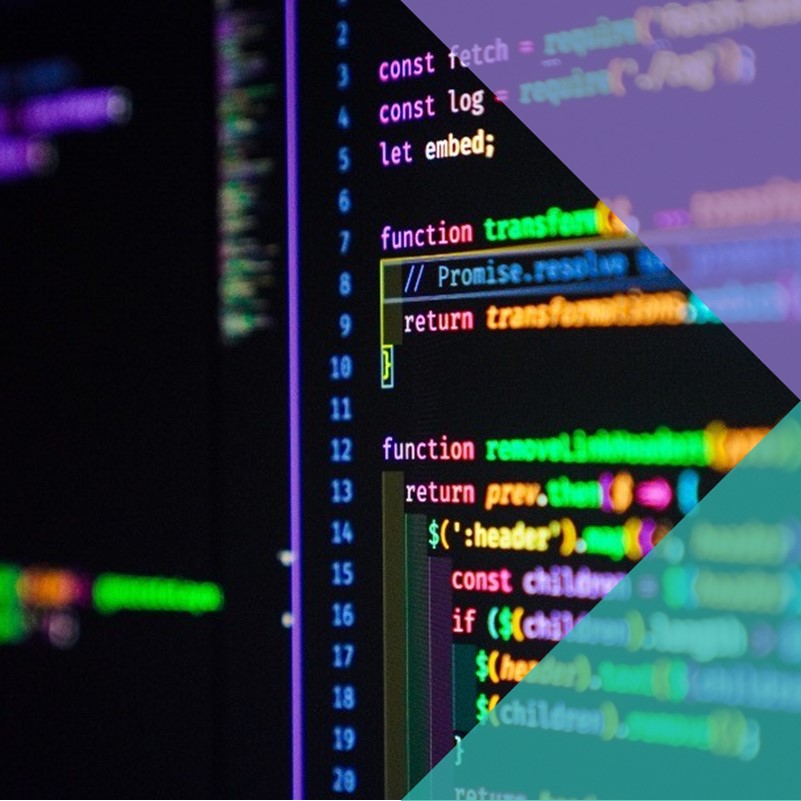Ideas Exchange 2023/2024
Creative technology is developing at an extremely fast paced, from AI technologies to game design. Queer voices and perspectives have often been sidelined or overlooked, hindering the progress of the field, and depriving it of diverse insights. It is necessary for us to ask how we can make sense of the technologies around us, which we all encounter in varying ways, through creative practices and queer insights.
We can turn to queer community-based creative technologists and their experience to cross-fertilise and explore together the role the university should have in reimagining technologies through queer lenses. Approaches to creative technologies are multifaceted, which is why it is important to collaborate between creative technologists and university researchers, as their identities often intertwine.
What will the project involve?
The idea for this project grew from a reading group co-founded and run by the two lead academic researchers called Future Speculations. The two researchers have collaborated on developing funding applications around queer creative practices and technologies.
This project will comprise of fortnightly meetings between two academic researchers and three different practitioners who have collaborated with them on previous projects. The meetings will strengthen connections between Francesco Bentivenga (Digital Theatre Lecturer), Katy Dadacz (Comparative Literature PhD, intern at the Centre for Creative Technologies), Harriet Horobin-Worley (Bristol-based, Queer Tech), Chloe Meineck (Bristol-based) and MELT (Berlin-based) to formulate research questions around innovative queer pedagogical practices in creative technologies.
The meetings will develop research questions using the Brigstow Toolkit, specifically focusing on creativity through constraints and framing into a project proposal. The team will seek to tackle questions on developing workshops and pedagogical practices that are informed by feminist and queer practices. The meetings will be guided by the following questions:
- What participatory pedagogies allow knowledge-exchanges centred around queerness?
- What agency is afforded to queer people when imagining future technological development?
- How can we develop creative practices that bring queerness to the forefront of re-inventing approaches to technology?
With these questions, the team aim to mix formal academic knowledge with community-based creative knowledge. By allocating time for reflection, research and experimentation with workshop techniques, the researchers will seek to create their own methodologies that are informed by each participant's practice.
Who are the team and what do they bring?
- Francesco Bentivenga (they/them, Theatre, University of Bristol) is a lecturer of Digital Theatre and Creative Industries at the University of Bristol, a musician, and a theatre practitioner. Their interests move between voice studies and philosophy of technology, focusing primarily on AI, artificial voices, posthumanism, techno-feminism and contemporary queer studies. They have been awarded a PhD with a thesis on Synthetic Voices in Performance, and they have published profusely in the field of Voice Studies and Interdisciplinary Performance Studies. They have a prolific solo career in the performing arts, with a focus on human and machines relations through voice with the stage name Francasixiə, with which they’ve written, directed, and produced multiple nationally recognised performance work.
- Katy Dadacz (they/them, Modern Languages, University of Bristol) is a Comparative Literature PhD student and intern for the Centre for Creative Technologies. Their work looks to mapping queer time and a digital affect theory through the aesthetic category of the glitch that appears in literary texts and visual culture. They work at the centre for creative technologies and have facilitated and co-led projects and workshops exploring queer methodologies and practices for community building with creative technologies.
- Harriet Horobin-Warley (they/them, University of Bristol) is co-organiser of Queer Tech, a group of queer creative software engineers that run monthly meet ups for those engaged with technologies. They look to develop ways to create space for radical, empowering and nurturing conversation. Harriet has been actively involved with the reading group, and previously co-designed a workshop for a 3-day event in November around low-tech solutions for designing queer servers.
- Chloe Meineck (she/her, University of Bristol) is a resident at the Pervasive Media Studio, a social-designer working in the intersection of art and technology. They have a history of expertise and experience in community technologies and inclusive design processes.
- Iz Paehr and Ren Loren Britton (they/them, they/them, MELT) are a collective from Berlin (GE). MELT also are involved with DIY practices, experimenting with shape-shifting processes that engage with material transformations. Their research is informed by transfeminist and disability justice. They have worked with the researchers in previous capacities, when invited to run a workshop at an event made possible by the Research Initiative Fund from the University of Bristol - Queer Methodologies in Creative Technologies. During this time, they have spoken about what it means to co-curate workshops centered around care, joy, playfulness, and experimentation.
What is to come?
The team hope this project will give them a chance to develop these practices into a research focused project proposal for further funding around queer trajectories in creative technologies, participatory practices and queer resilience. In future, they aim to widen the interdisciplinary nature of this project by including creative practitioners and a different range of academics from the University of Bristol. They are currently in conversation with colleagues from Computer Science, Film & TV and Social Sciences.
The final aims are to provide as many queer creatives as possible with networks, skills, and platforms to thrive and explore creative technologies, and to thoroughly re-imagining what these technologies are and what they mean.
